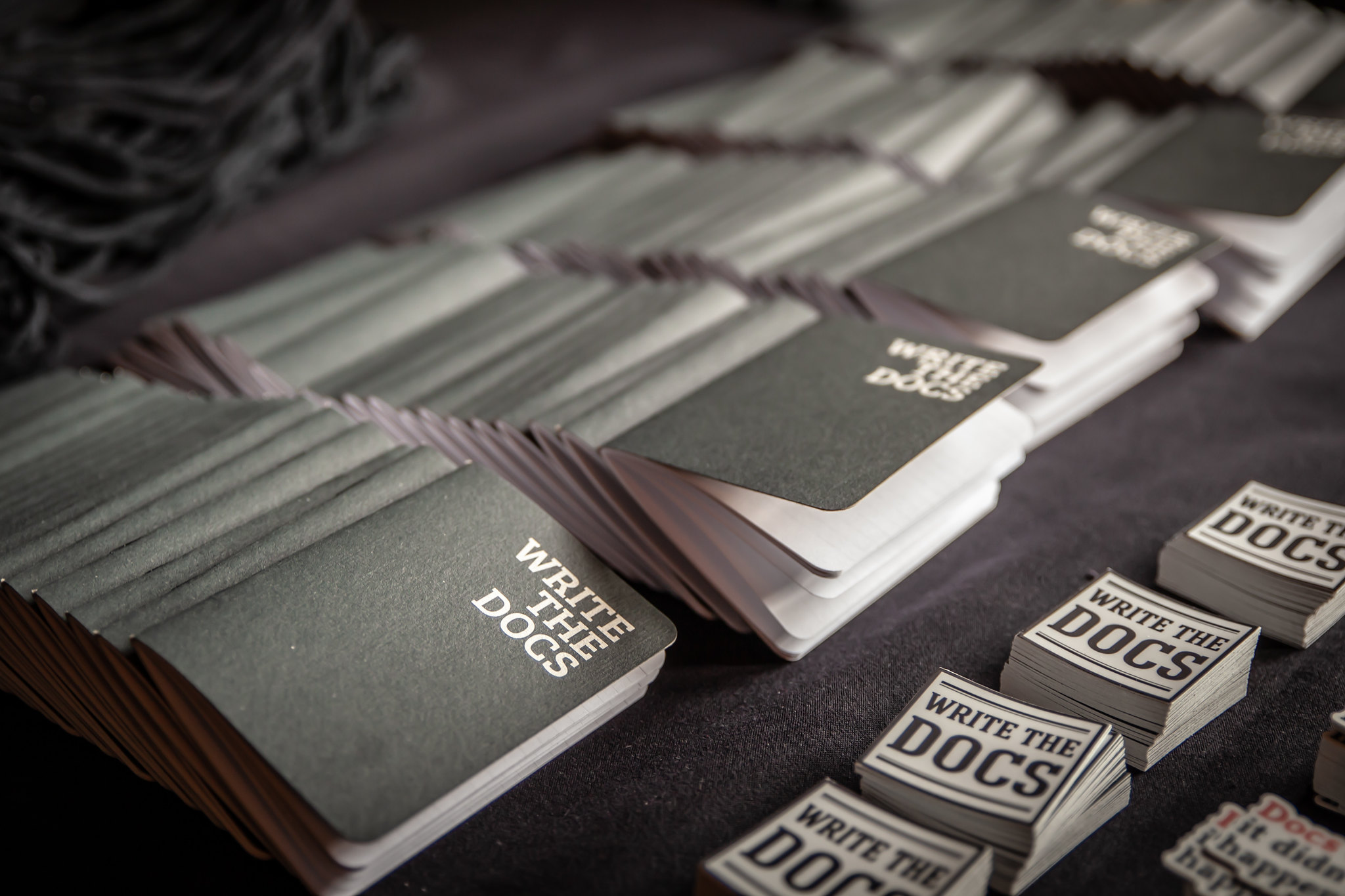WTD PDX 2019 - Day 2 Recap
I couldn’t be happier that my first professional conference was Write the Docs.

Catch up on Day 1 in my previous recap.
A big thank you to the WTD organizers and presenters. Everyone cares so much about documentation, which is still a welcome shock. I can’t wait to come back in 2020.
To everyone I met: Hello! Let’s keep in touch.
My recap follows below. Enjoy.
Day 2 Recap
- Include the end user! The (spoken) truth: docs are better when users contribute to the breadth, depth and end product of the documentation pipeline. Speakers alluded to tracking and analyzing users. They’re right. You’re throwing work at the wall and hoping it sticks if you don’t keep close tabs on what users need and want.
- That said, analytics are hard. Sarah Moir’s excellent talk on using data to rank your backlog hit home for me. I’m relaunching Google Analytics for our Confluence-based doc portal at work. And even the data-confident Sarah spoke to the parsing potholes when dealing with a ton of sources. Focus and narrative are key. It’s nice to know the difficulty curve isn’t my experience alone.
- I’m not an “impostor.” This sounds obvious, but I’m still new to the discipline. Also, being a lone tech writer for four years was demoralizing. When I came across Tom Johnson’s I’d Rather Be Writing, I admired that he “got” tech writing. But I also felt intimidated by his level of knowledge and breadth of experience. “I can’t do what he does,” I told myself. Impostor syndrome is a real, awful feeling. (Note: As a white, straight and cisgender male, my ‘outsider’ experience =/= the extra levels of anxiety and pressure marginalized groups face in this industry.) I again felt admiration and self-deprecation when I joined the WTD Slack. I read the chats of so many smart documentarians I assumed I didn’t belong. But the conference reinforced the truth that we each struggle. WTD PDX relieved some of my anxiety and opened me to the sincerity of this community. People know where you’ve been, and they’re happy to help you along the way.
- Take the elevator sometimes. Business cases aren’t my favorite activity. I get they’re necessary, but that doesn’t mean I love writing one. One salient piece of advice I took away from Matt Reiner’s energetic talk on business cases is to work on your elevator pitch. I’m loathe to admit that he’s right, only because that means I have to force myself to hone that skill. The truth is, if you can’t present your “why” in a brief ride up a few floors, you haven’t done the work. Go back to the drawing board, friend.
- “Strategery” is also hard, but invaluable. Kay Miles killed it discussing information architecture and content strategy. Her talk reminded those of us who think strategically about content that we have long, exhausting battles to fight. As Kay said, to win you have to: (1) fix the root cause; (2) be consistent; (3) be Google and offer relevant, mind-reading search returns. If you aren’t solving content issues at the root, those ugly doc weeds will keep sprouting by the dozens.
- Open source seems cool, right? This is a lazy point for me to make, but yes, open source is rad. I left WTD more than a bit envious. So many documentarians shared their success stories deploying effective, efficient and capable docs for open source products. I don’t work in that world, but it’s something I intend to keep my eye on as I dive deeper into docs-as-code.
If you’re at all interested in WTD but couldn’t attend the PDX conference, I recommend checking out the WTD YouTube channel. The amazing team posted most of the talks from the last two days, and there are previous conference talks available, too!
Reminder: all my WTD PDX 2019 notes are on GitHub via my WTD-2019 repo.

